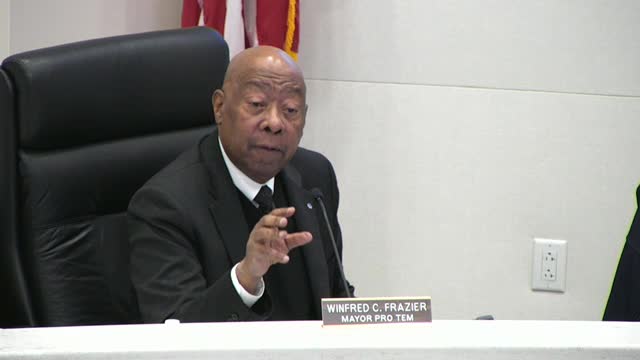Environmental board wins council backing for free food‑waste diversion pilot with 0Waste
Get AI-powered insights, summaries, and transcripts
Subscribe
Summary
Bellaire's Environmental Sustainability Board will run an eight‑week public education and drop‑off pilot with 0Waste to demonstrate curbside/collection options for compostable food waste; the vendor is providing the outreach pilot at no cost to the city.
Bellaire — The City Council on Jan. 6 signaled support for an eight‑week educational pilot to promote food‑waste diversion, with the Environmental Sustainability Board (ESB) partnering with local firm 0Waste to run neighborhood drop‑off events and collect data on resident interest.
Giles Dunn, chair of the ESB, presented the proposal and said 0Waste will provide materials, buckets and pick‑up infrastructure at no cost to the city for the pilot. “The whole program has been offered to us for free,” Dunn said. The pilot would run on alternating weekends at a city‑designated drop‑off site; residents would be able to pick up a sealed food‑grade bucket (0Waste sells a starter bucket for about $25) and, after the pilot, sign up for voluntary weekly curbside pickup from 0Waste or other vendors at a private cost (0Waste’s advertised curbside subscription was discussed in the presentation at roughly $10 per month).
ESB members and 0Waste representatives said the education program will show residents how to divert food scraps and explain which materials are compostable, how to avoid contamination and how the collection works. The board will staff the drop‑off events with volunteers and the city’s Youth Advisory Board agreed to help publicize the effort. The ESB told council it will compile a report after the pilot showing participation, volumes collected and resident interest in ongoing service options.
Council members and staff asked practical questions about odors, pests and logistics. 0Waste and ESB members said sealed, gamma‑lidded buckets and daily pickup during the pilot will reduce nuisance concerns; the vendor will remove collected material at the end of each event. The council expressed support for adding a permanent web page linking vetted private composting services so residents can continue service after the pilot.
By general assent at the meeting the council supported the pilot and asked staff to coordinate advertising and logistics with ESB and city communications. No city funds were required for the educational phase; any future city‑run or subsidized curbside program would require a separate council decision.
